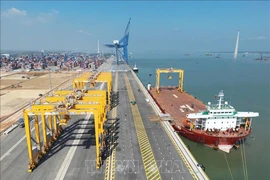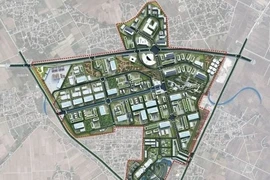Bloomberg on February 14 published an article quoting founders’ opinion that an abundance of inexpensive engineers coupled with a fast-growing economy makes Vietnam an attractive spot for startups.
For many Westerners, the enduring image of Vietnam is of a war-torn, impoverished nation where Nike makes its shoes.
These days, coders are moving to the nation’s commercial hub of Ho Chi Minh City to launch startups focused on everything from insomnia to microloans. But becoming Asia’s next startup hub will require overhauling existing regulations and navigating some hefty economic headwinds.
The article cites a report published in July 2022 by KPMG International Ltd and HSBC Holdings Plc which states that the number of startups in the country nearly doubled from the beginning of the COVID-19 pandemic to mid-2022.
In 2021, Vietnam drew a record $2.6 billion through 233 private deals, up from the $700 million via 140 deals a year prior, according to a Google, Temasek Holdings Pte. and Bain & Co. report.
Bloomberg’s article also mentions the Vietnamese Government aims to turn Ho Chi Minh City into a magnet for tech funding and is striving to grow its digital economy which is expected to represent 40% of the southern city’s gross domestic product.
Experts said that Ho Chi Minh City has factors to make it the next Silicon Valley including a heavy math and science educational system, a decades-old software outsourcing industry that’s created an abundance of inexpensive and talented engineers.
Vietnam’s nascent startup sector has been years in the making. In 2013, the launch of Flappy Bird was hailed as a gaming phenomenon that would boost the country’s startup heft.
While that game was later pulled, it showed the way to a new generation of firms like mobile payment provider VNPay, which according to ADB became the country’s second unicorn in 2020.
Local firms are also competing with its Southeast Asian peers, accounting for 13% of the total venture funding flows into the region after Indonesia and Singapore in 2021, according to Do Ventures.
Lauria, an American expat and co-founder of Golden Gate Ventures, relocated to Ho Chi Minh City in 2022 after previous stints in Singapore and San Francisco, joining a growing number of foreigners lured there by a belief that the dense metropolis is a new mecca for startups.
He decided to take the plunge after watching the country’s extraordinary growth per capita triple over the past decade. He thinks online spending could multiply five fold over the next six years.
Startups are also tapping an acceleration of Vietnamese citizens returning home, according to Nguyen Nguyen, who runs a Sequoia-backed artificial intelligence firm that helps people without credit histories obtain loans./.



















